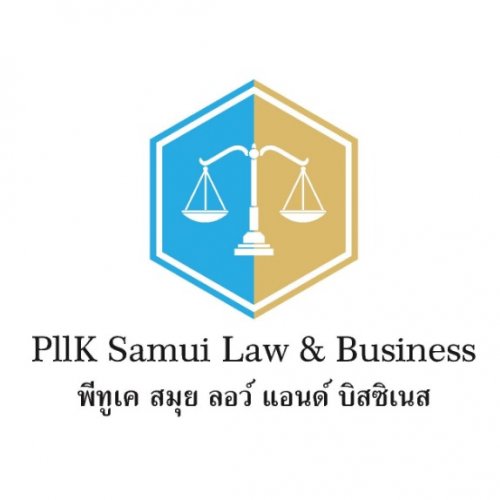Best Sanctions & Export Controls Lawyers in Surat Thani
Share your needs with us, get contacted by law firms.
Free. Takes 2 min.
List of the best lawyers in Surat Thani, Thailand
About Sanctions & Export Controls Law in Surat Thani, Thailand
Sanctions and export controls are vital areas of law that govern how goods, technologies, and services can be transferred across national borders. In Surat Thani, Thailand, as in the rest of the country, these laws are designed to ensure compliance with both domestic regulations and international obligations. Thailand, as an active member of the global community, enforces measures against certain countries, individuals, or entities in line with United Nations sanctions as well as its own national security interests. Export controls regulate the export of specific goods, particularly those with potential military applications or sensitive technologies. Non-compliance can result in severe penalties, including financial penalties, loss of export privileges, and even criminal prosecution.
Why You May Need a Lawyer
Navigating sanctions and export control laws can be complex, particularly if you are engaged in international trade, logistics, shipping, or any business that deals with cross-border transactions in Surat Thani. You may require a lawyer if:
- You are exporting or importing goods and need to understand if your products are subject to export controls.
- Your business deals with dual-use items that can have civilian and military applications.
- You want to avoid inadvertently breaching international sanctions or embargoes.
- You have been contacted by authorities regarding compliance checks or investigations.
- You need to apply for an export license or seek exemptions under Thai law.
- You are concerned about third-party risks if your clients or partners are based in sanctioned jurisdictions.
- You need to conduct due diligence on international transactions or business partners.
- You are facing penalties or enforcement action related to export activities.
Legal experts can provide clarity and reduce the risk of significant financial and reputational damages.
Local Laws Overview
In Surat Thani, compliance with both Thai and international laws is essential for any person or business involved in exporting, re-exporting, or brokering activities. Key aspects include:
- Thailand’s Ministry of Commerce is the main authority overseeing export controls.
- Export Control Act and related regulations govern the licensing requirements for exporting certain goods.
- Goods with potential military, dual-use, or strategic importance may require special authorization before export.
- Specific goods such as chemicals, electronics, software, and machinery are closely regulated.
- United Nations Security Council sanctions are incorporated into Thai law, making it illegal to transact with certain entities or countries.
- Customs Department enforces compliance and may conduct inspections or seize goods that violate regulations.
- Severe penalties, including fines and imprisonment, apply for breaches of export control and sanctions laws.
- Due diligence and record-keeping are critical for businesses to prove compliance if audited or investigated.
Understanding the nature of controlled goods and taking proactive legal steps reduces the risk of inadvertent violations.
Frequently Asked Questions
What are sanctions and export controls?
Sanctions are legal restrictions placed on specific countries, organizations, or individuals, usually for political or security reasons. Export controls regulate the export, re-export, and transfer of certain goods, services, and technology considered sensitive for security, military, or foreign policy concerns.
Who enforces sanctions and export controls in Surat Thani?
The primary enforcement bodies are the Ministry of Commerce, Customs Department, and Royal Thai Police, acting under Thai law in line with international agreements.
What types of goods are typically subject to export controls?
Typical controlled goods include weapons, dual-use technology, chemicals, encryption software, and electronic equipment that could be used for military purposes.
How do I know if my business needs an export license?
If your business deals with controlled goods or exports to countries under strict regulations or sanctions, you likely need an export license. A lawyer can help determine your licensing needs based on Thai law.
Are sanctions the same globally?
No. While Thailand implements United Nations sanctions, countries may also have their own lists and restrictions. It is important to understand both local and international obligations for global trade.
What are the penalties for violating Thai export controls?
Penalties include heavy fines, seizure of goods, cancellation of export privileges, and possible imprisonment, especially for intentional or repeated violations.
Do sanctions apply to individuals as well as businesses?
Yes. Both individuals and businesses can be held liable for breaching sanctions or export control laws under Thai regulations.
How can I verify if my trading partner is on a sanctions list?
You should check with the Thai Ministry of Commerce and international databases, or consult a legal expert for professional due diligence.
How often do sanctions and export control lists change?
These lists are regularly updated in response to international developments and security risks. Keeping informed is crucial for compliance.
What should I do if I suspect I have breached export control laws?
Immediately seek legal advice. Voluntary disclosure and cooperation with authorities often mitigate penalties, but professional guidance is essential.
Additional Resources
If you need more information or support, consider reaching out to:
- Ministry of Commerce: For export licensing requirements and lists of controlled goods.
- Customs Department: For information on shipment inspections and border controls.
- Royal Thai Police: For enforcement and investigations related to sanctions violations.
- Local Chambers of Commerce: For business support and compliance resources.
- Reputable Law Firms in Surat Thani: For personalized legal advice and representation.
Next Steps
If you require legal advice or assistance with sanctions and export controls in Surat Thani, Thailand, consider taking the following steps:
- Assess your situation and gather all relevant documents relating to your export transactions.
- Contact a qualified legal professional or law firm with experience in sanctions and export controls in Thailand.
- Prepare a list of your questions and concerns to discuss during your consultation.
- Ensure you understand your obligations and set up compliance systems for ongoing operations.
- Stay informed about updates to laws and regulations by subscribing to relevant governmental notifications or legal updates.
Legal compliance is essential to protect your business and reputation. Timely legal advice will help you navigate regulations confidently and avoid costly mistakes.
Lawzana helps you find the best lawyers and law firms in Surat Thani through a curated and pre-screened list of qualified legal professionals. Our platform offers rankings and detailed profiles of attorneys and law firms, allowing you to compare based on practice areas, including Sanctions & Export Controls, experience, and client feedback.
Each profile includes a description of the firm's areas of practice, client reviews, team members and partners, year of establishment, spoken languages, office locations, contact information, social media presence, and any published articles or resources. Most firms on our platform speak English and are experienced in both local and international legal matters.
Get a quote from top-rated law firms in Surat Thani, Thailand — quickly, securely, and without unnecessary hassle.
Disclaimer:
The information provided on this page is for general informational purposes only and does not constitute legal advice. While we strive to ensure the accuracy and relevance of the content, legal information may change over time, and interpretations of the law can vary. You should always consult with a qualified legal professional for advice specific to your situation.
We disclaim all liability for actions taken or not taken based on the content of this page. If you believe any information is incorrect or outdated, please contact us, and we will review and update it where appropriate.










